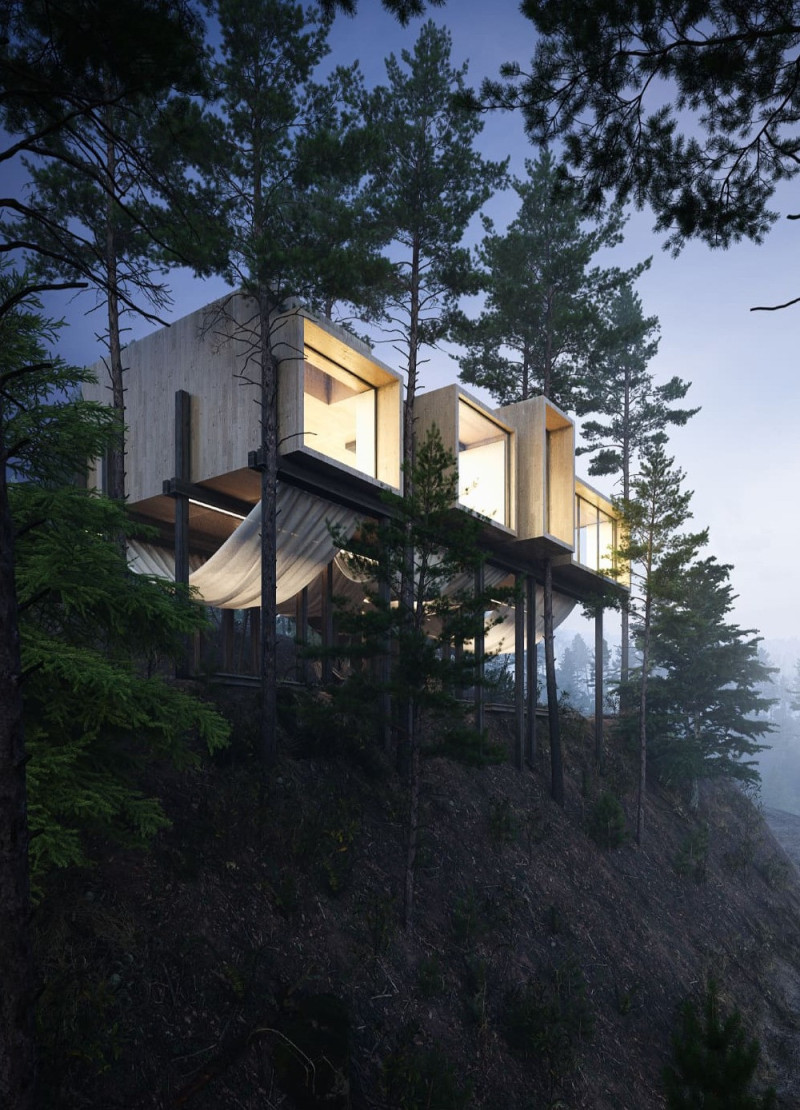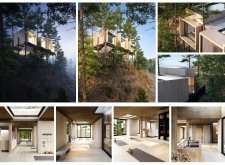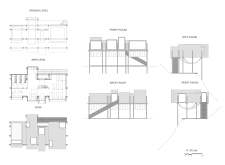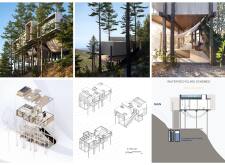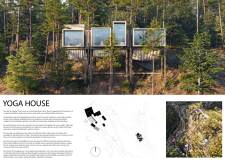5 key facts about this project
The yoga house is located on a hill, perfectly situated to take advantage of its natural surroundings. It serves as a peaceful retreat for those practicing yoga, offering a design that prioritizes both functionality and environmental care. The concept focuses on modularity and simplicity, allowing the house to fit well within the wooded landscape while minimizing its impact on the environment.
Modular Concept
The design is organized into several blocks that provide flexibility and can be modified or expanded in the future. This modular structure allows the building to adapt to changing needs. Elevated on columns, the yoga house reduces its ground footprint and creates additional space below. This design detail gives the house an appearance of floating slightly above the earth, alongside the trees.
Functional Zoning
The layout is carefully planned to accommodate different activities. Designated areas allow for outdoor sessions, individual practices, pair classes, and larger group events. Support areas, including lounges, showers, toilets, and kitchens, are included to enhance the overall experience for users. This organization of spaces encourages interaction and community among visitors.
Interior Aesthetics
Inside, the design leans towards minimalism, creating a calm environment suitable for meditation. Simple lines and unobtrusive elements keep distractions to a minimum. Large windows invite ample natural light and frame views of the natural surroundings. This creates a strong visual link between the interior and the outside, making nature a part of the experience.
Sustainable Considerations
Although specific materials are not mentioned, the design emphasizes ecological responsibility. The goal is to use materials that reduce environmental impact while still serving functional and aesthetic purposes. This focus aligns well with modern architectural practices that seek to promote sustainability in building design.
The yoga house encourages users to connect deeply with nature and their own well-being, emphasizing a design that supports tranquility and reflection. Through its thoughtful details, it fosters an environment dedicated to wellness and relaxation.


